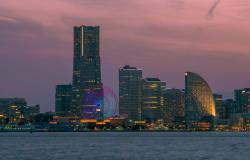Searching for a Mature City Diplomacy in East Asia and Beyond

Daniel Clausen explores how cities are working around the deadlocks of state-level diplomacy.
In Beijing, Tokyo, Yokohama, and Taipei, the actions of cities on the global stage are becoming increasingly harder to ignore. This has led to a renaissance in the discussion of best practices in the growing phenomenon of city diplomacy, also known as urban diplomacy, local diplomacy, and subnational diplomacy.
It has been common to refer to the 21st century as the “urban century.” The importance of cities grows as humanity as a whole is becoming more urban. Experts estimate that 68% of the world’s population will reside in cities by 2050. Greenhouse gas emissions, income inequality, and homelessness are among the most challenging issues of the 21st century—issues that are intertwined with urban areas. Cities are both the focal points of these problems and the testing grounds for new solutions.
The recent publication of the Meridian Center’s “Global Engagement, Local Benefits: A Strategic Subnational Strategic Toolkit for City, State, and Local” (done in partnership with the Truman Center and the Melbourne Center for Cities) seeks to promote best practices in city diplomacy by grounding its advice in examples of local diplomacy throughout the world.
In the Meridian Center’s “Toolkit” report, the city of Yokohama, Japan, is featured as an example of a city that acts strategically on the global stage. The report highlights how Yokohama, in partnership with the United Nations Development Programme, has agreed to help its sister city Odesa, Ukraine, restore infrastructure damaged during the ongoing war. The report also highlights Yokohama’s Y-PORT Initiative (Yokohama Partnership of Resources and Technologies), a project that has been underway for over a decade. This initiative aims to promote smart city technologies and address environmental issues in cities across Asia, utilizing Yokohama's expertise in urban development. Yokohama’s initiatives mirror other city-based international initiatives across Japan, such as the leadership of Nagasaki and Hiroshima in Mayors for Peace. This organization currently boasts more than 8,000 member cities throughout the world dedicated to the abolition of nuclear weapons.
Asian cities play an increasingly visible role in global climate efforts, as seen in their active participation in the C40 Climate Leadership Group, which brings together nearly 100 major cities worldwide. Many large cities throughout Asia—including Beijing, Shanghai, Hong Kong, Tokyo, Yokohama, Seoul, and Kuala Lumpur, to name just a few—participate in the C40 network, sharing knowledge and collaborating to address climate change. This collaboration was on display last year from September 2 to 6, 2024, in Quezon City, Philippines, as city leaders from Kuala Lumpur, Jakarta, and Quezon City gathered to share information to help accelerate environmental action plans in their respective cities. A significant aspect of the C40 network is the way member cities transcend international geopolitical divisions.
The city of Taipei provides another compelling example of city diplomacy. In the context of Taiwan’s limited international recognition, city diplomacy provides a way to sidestep its isolation. In addition to its fifty-two sister city relationships, Taipei is also a member of important international associations such as United Cities and Local Governments (UCLG) and CityNet, which gives Taipei a platform to share its voice with the world. In July of this year, Taipei’s mayor attended the “Summit of Mayors: From Paris to Belém” in Paris, France, marking the 10th anniversary of the Paris Agreement. At the summit, the mayor highlighted the city’s waste disposal policies and bike sharing system.
There is a growing trend toward the professionalization of city diplomacy and the spread of best practices. We see this especially in the efforts of C40’s Knowledge Hub, the City Diplomacy Lab, the Carnegie Endowment for International Peace, the Melbourne Centre for Cities, and a growing number of academic publications, such as the Hague Journal of Diplomacy. However, it is also important to realize the limitations of city diplomacy. Although there have been reported increases in dedicated offices to international relations in cities and training for staff, the ability of cities and other subnational units to conduct diplomacy still pales in comparison to states. The shortcomings of local governments are especially apparent in smaller cities (as this study of cities in Nagasaki Prefecture found).
Nevertheless, what we see throughout the various city diplomacy initiatives is a desire for cities to learn from one another, spread best practices, and find ways to work around the deadlocks of state-level diplomacy to cover gaps in governance and provide opportunities for their citizens.
Daniel Clausen is a full-time lecturer at Nagasaki University of Foreign Studies. He is a graduate of Florida International University’s Ph.D. program in International Relations. His research has been published in Asian Politics & Policy, e-International Relations, The Diplomatic Courier and Global Policy, among other journals and magazines.
Photo by Nguyen Khac Tien


